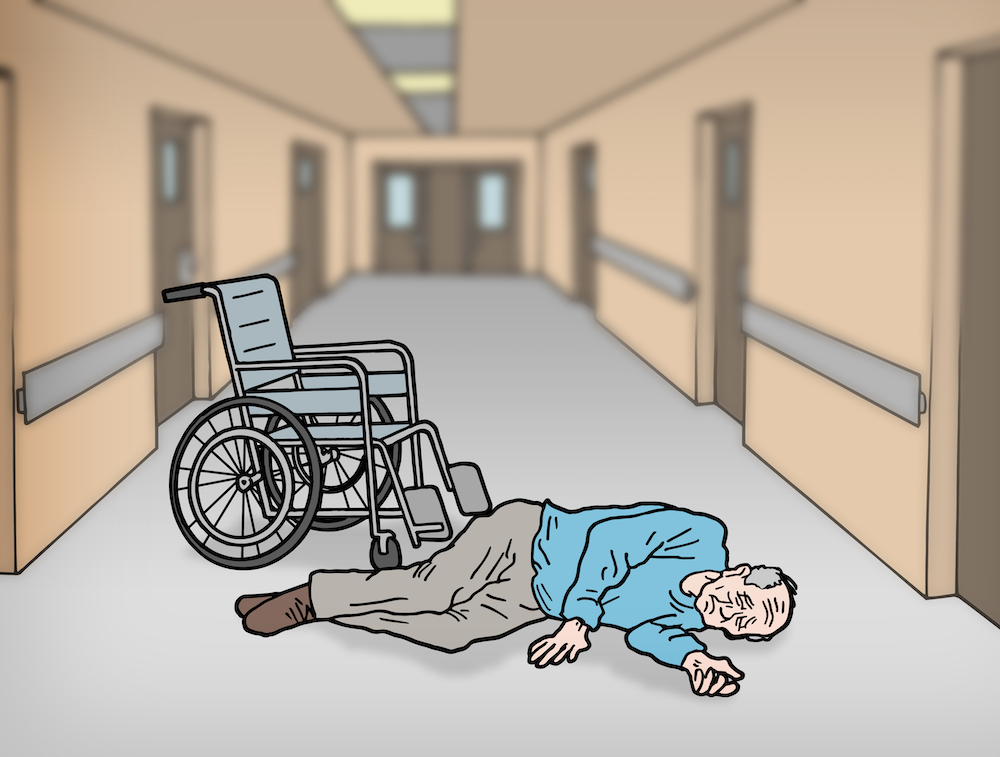What to Do If You Suspect Neglect or Abuse in a Nursing Home
Every individual deserves to be treated with respect, dignity, and proper care, especially those residing in long-term care settings like nursing homes or assisted living facilities. However, neglect and abuse sadly occur in such settings, making it essential for family members and friends to be vigilant. This article provides comprehensive guidance on how to identify potential neglect or abuse, understand its root causes, prevent it, and take appropriate steps if such circumstances arise.
Posted on August 10, 2023

Identifying Signs of Neglect or Abuse in Long-Term Care
The first step to addressing the issue is identifying it. Some common indicators of neglect or abuse include:
- Unexplained bruises, cuts, or burns
- Frequent infections
- Rapid weight loss or malnutrition
- Bedsores or pressure ulcers
- Changes in behavior or mood (depression, withdrawal)
- Poor personal hygiene
- Unsanitary living conditions
- Over or under-medication
- Fearful behavior around certain staff members
What Constitutes Abuse or Neglect in a Long-Term Care Setting?
Abuse can be physical, emotional, sexual, or financial. Physical abuse involves causing bodily harm through actions like hitting or shoving. Emotional abuse could be verbal assaults, threats, or other actions that cause mental distress. Sexual abuse involves non-consensual sexual acts, while financial abuse pertains to misusing a resident's money or assets.
Neglect, on the other hand, is the failure to provide necessary care, leading to harm or distress. This could be through a lack of basic hygiene, medical attention, or providing the necessities of life like food and water.
Why Does Abuse or Neglect Occur?
There are several reasons why neglect or abuse can occur in nursing homes:
- Understaffing: When facilities have insufficient staff, it can lead to overworked caregivers who might neglect their duties.
- Inadequate training: Without proper training, caregivers may not know how to handle certain situations, leading to potential harm.
- Lack of resources: Insufficient equipment or amenities can lead to compromised care.
- Financial motives: In some cases, the motive behind abuse can be financial gain.
- Management issues: When the facility management is lax in enforcing standards, abuse or neglect can creep in.
How to Prevent Neglect and Abuse
- Regular visits: Frequently visiting your loved one allows you to monitor their condition and the care they're receiving.
- Open communication: Ensure your loved one feels safe discussing any concerns with you.
- Know the staff: Familiarize yourself with the caregivers and management.
- Stay informed: Know the rights of residents and the duties of the caregivers.
What to Do If You Suspect Abuse or Neglect
- Document everything: Take photographs of injuries, keep a diary of events, and document any suspicious incidents.
- Speak with management: Raise your concerns with the facility's management or administration.
- Contact appropriate agencies: In New Jersey, you can contact the Office of the Ombudsman for the Institutionalized Elderly to report abuse or neglect.
- Seek medical attention: If needed, ensure your loved one receives proper medical care for any injuries or health issues.
Reporting Nursing Home Neglect and Abuse in New Jersey
In New Jersey, suspicions of nursing home neglect or abuse can be reported to the Office of the Ombudsman for the Institutionalized Elderly. They investigate complaints and ensure residents' rights are protected.
When to Seek Help from an Attorney
If your loved one's situation doesn't improve or if you believe they're at immediate risk, it's essential to consult with an attorney specializing in elder law or nursing home neglect. They can guide you on legal steps and rights.
Filing a Claim in Court
If you decide to file a claim:
- Gather evidence: This includes medical records, photographs, witness statements, and any other pertinent documents.
- Hire a specialized attorney: An attorney with experience in nursing home neglect or abuse will be invaluable in navigating the legal process.
- File the claim: Your attorney will guide you through the process, ensuring all necessary paperwork and documentation are filed correctly.
Supporting Your Claim with Evidence
- Medical records: These can indicate neglect or abuse and show a pattern of injuries or health issues.
- Witness statements: Other residents, visitors, or staff might provide crucial testimony.
- Photographs: Document injuries, living conditions, or any other evidence of neglect or abuse.
- Expert testimonies: Professionals can provide insight into the standard of care expected and whether it was met.
In conclusion, protecting our elderly loved ones in long-term care is paramount. Knowing the signs of neglect or abuse, understanding why it happens, and being proactive in prevention can ensure they receive the care they deserve. If suspicions arise, taking prompt and informed action can make all the difference.
More from our blog…
Seven Ways to Distribute Your Personal Property Fairly
Unlike money, personal belongings usually can't be divided equally after their owner passes away. For this reason, distributing possessions like furniture, jewelry, dishes, silverware, artwork, [...]
Capacity Requirements for Executing Estate Planning Documents
Proper execution of a legal instrument requires that the person signing have sufficient mental "capacity" to understand the implications of the document. While most people [...]
What You Should Know About Long-Term Care
Research shows that roughly one in seven adults aged 65 or older will need long-term care at some point in their later years. Meanwhile, tens of millions [...]
Understanding Medicaid: What Does Medicaid Cover?
In the complex and frequently changing landscape of health care in the United States, Medicaid stands out as a vital program. Since 1965, it has [...]
Recent blog posts

FREE WEBINAR
5 Things to Know About
Estate Planning
When You Turn Sixty-Five





